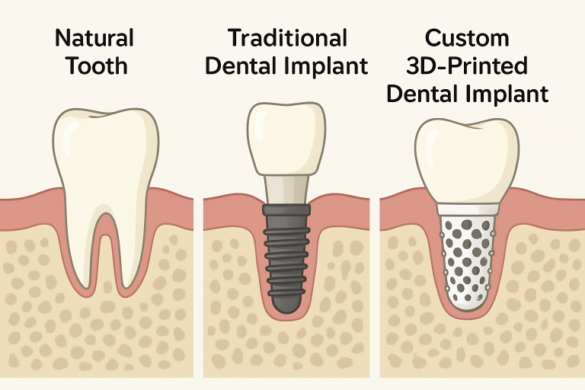 When people think about drug or alcohol rehab, they often picture someone who’s lost everything—job, home, friends. That’s what movies and TV shows usually show. But real life isn’t always like that. Rehab isn’t only for people at rock bottom. It’s for anyone who wants help before things get worse.
When people think about drug or alcohol rehab, they often picture someone who’s lost everything—job, home, friends. That’s what movies and TV shows usually show. But real life isn’t always like that. Rehab isn’t only for people at rock bottom. It’s for anyone who wants help before things get worse.
You Don’t Have to Hit the Lowest Point
A lot of people believe rehab is something you only do when you’ve got no other choice. But waiting until everything falls apart doesn’t make recovery easier—it makes it harder. The truth is, the sooner someone gets help, the better their chances of getting their life back on track without lasting damage.
Just because someone hasn’t lost their job or gotten in trouble with the law doesn’t mean they aren’t struggling. Addiction doesn’t always look the same. Some people are great at hiding it. They might be doing okay at school or work, but behind the scenes, they feel out of control.
Going to rehab can be a smart move to prevent things from getting worse. It’s not admitting defeat—it’s making a smart decision. There’s actually a lot of support out there, especially in places known for good care. For example, if someone lives in the Northeast, they might find strong programs by checking out rehabs in New Jersey that specialize in helping people before they hit that so-called bottom.
What Rehab Actually Looks Like
Rehab isn’t a scary hospital or a jail-like place. It’s more like a safe zone where people can take a break from all the pressure and start fresh. Most places feel calm and private. There’s usually a routine with healthy meals, therapy sessions, time to rest, and ways to stay active.
People don’t just sit around all day talking about drugs or alcohol. They learn real skills—how to handle stress, deal with triggers, and build healthier habits. Therapy helps people understand why they started using in the first place and what they can do instead.
There’s also group support. Being around others going through something similar can be comforting. It’s easier to open up when you don’t feel judged. Some rehab centers even include fun things like art, sports, or meditation to help people feel better in their minds and bodies.
Rehab Is for Everyday People
Another big myth is that rehab is only for celebrities or people with serious criminal records. That’s just not true. Most people in rehab are regular folks—students, parents, teachers, nurses. Addiction doesn’t care who you are or how old you are. It affects all kinds of people.
Sometimes people start using substances just to cope. Maybe they were anxious, had trouble sleeping, or wanted to escape stress. That doesn’t make them bad. It makes them human. The problem is, those habits can get out of control really fast without anyone noticing.
Rehab gives people a chance to press pause and figure out how they got there. It’s not about shame. It’s about learning to take care of yourself and get back in control. That’s something anyone can benefit from, no matter what their life looks like on the outside.
Getting Help Is a Strength, Not a Weakness
There’s this weird idea that asking for help means you’re weak. That’s not true at all. Think about it: if someone broke their leg, no one would expect them to just walk it off. They’d go to the doctor, get a cast, and rest. Addiction is also a health problem. It just affects your brain and behavior instead of your bones.
Choosing to go to rehab is actually a strong move. It takes guts to admit something isn’t working and try something new. It means someone is serious about living better, even if it’s hard. And rehab helps people learn how to stay strong, not just for a few weeks, but for life.
You Can Still Have a Future
Some people think going to rehab will mess up their future. They worry about what others will think or if they’ll get labeled forever. But rehab doesn’t mean life is over—it’s a fresh start.
Lots of people who’ve been through treatment go on to do amazing things. They finish school, get great jobs, start families, or help others in recovery. Rehab doesn’t take away your future. It gives you a real shot at a better one.
And honestly, the people who matter most—real friends, caring family—will respect someone for getting help. Most of them are probably already worried and hoping for change. When they see someone take that step, they feel relief, not disappointment.
Catching It Early Makes a Big Difference
There’s no need to wait for a disaster to get help. Rehab works better when people catch the signs early. If someone’s using more than they used to, feeling anxious without it, or hiding it from others, that’s a sign it’s time to check in with a professional.
The earlier someone gets help, the more they can avoid serious health problems, broken relationships, or legal trouble. And it’s way easier to build a new path when things haven’t totally fallen apart. Rehab can be the space someone needs to breathe and figure things out before everything gets out of hand.
It’s Okay to Be Scared—But Don’t Let That Stop You
Starting anything new can feel scary, especially something as personal as rehab. But being scared doesn’t mean it’s the wrong move. It just means change is happening—and change is tough.
The good news is, nobody has to do it alone. Rehab centers have people who know exactly what others are going through. Their job is to help. From the first phone call to the last day of the program, they’re there to guide, support, and listen.
And once someone starts seeing progress—better sleep, clearer thoughts, less stress—that fear starts to fade. It gets replaced by confidence and hope.
What to Take Away From All This
Rehab isn’t some last-chance option for people who’ve lost it all. It’s a healthy, helpful step for anyone who wants to stop a problem before it gets worse.
It’s not a punishment. It’s a way to build something better.
So if someone’s struggling—even a little—it’s okay to speak up. There are places and people ready to help, without judgment. Getting support now can make all the difference later.
Don’t wait for rock bottom. Just reaching out is enough to start the climb up.









